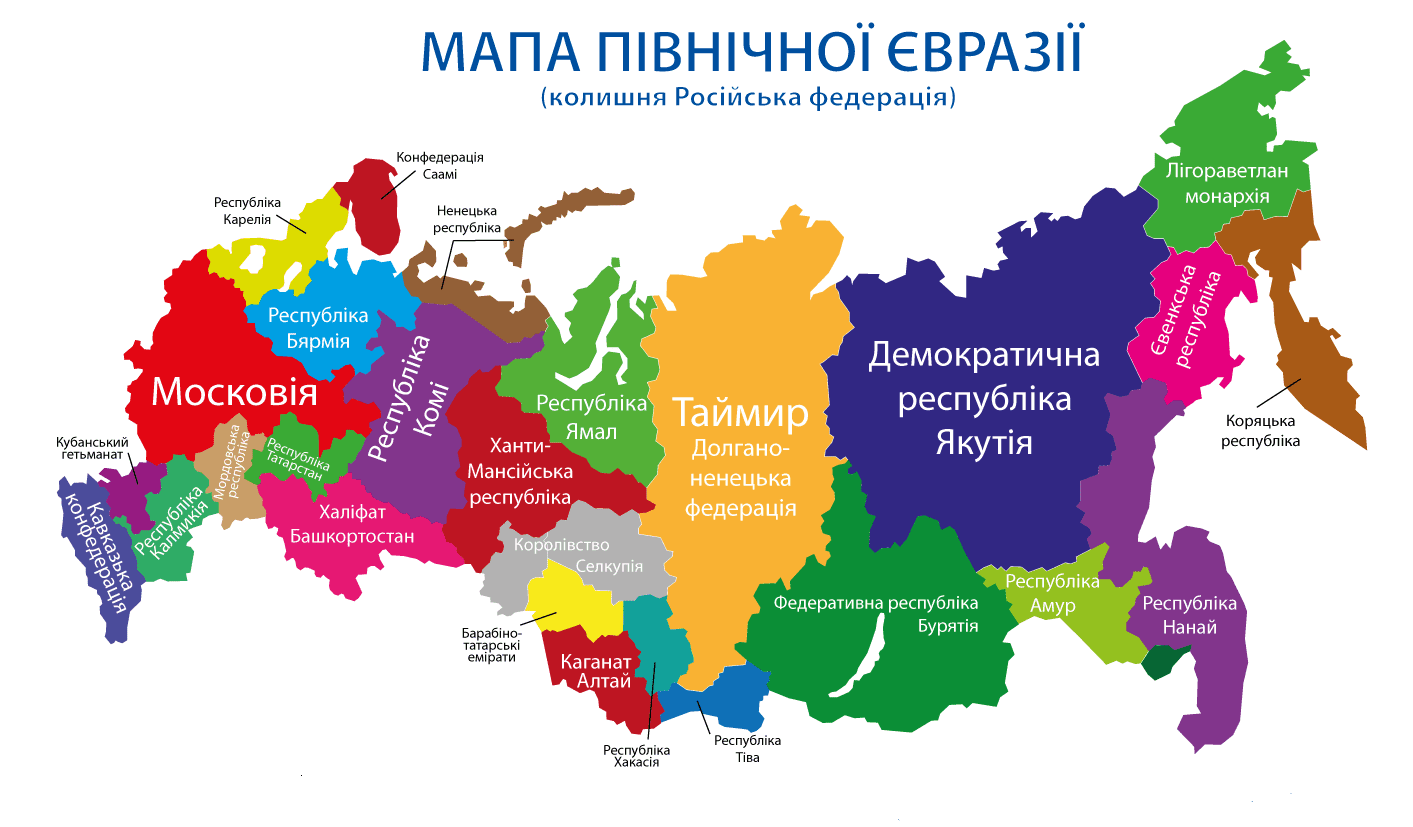Many Ukrainian and Western experts are talking about the impending collapse of Erethia, but the prospects for Russian collapse remain long-awaited but not obvious. Russia is still not falling apart, and on the contrary, it is making progress in capturing Donbas. However, Russia has collapsed many times in history, and each time it was a surprise to everyone.
In the twentieth century alone, Russia broke up 2 times. After the Bolshevik coup and the so-called Civil War in 1918-1921, dozens of new republics declared independence on the territory of the former Russia: The Great Don Army (Don and Kuban), the Siberian Republic, the Urals and the Volga region, Komuch, a republic that remained loyal to the Constituent Assembly, the Republic of Tuva, etc. For several years, Russia disappeared from the political map of the world and disintegrated into dozens of independent states, which, unfortunately, did not last long and were occupied by Moscow. In 1991, the Moscow Empire collapsed again, but in addition to the Soviet republics, Chechnya and Tatarstan, which were defeated at the time, fought for freedom.
Now most of the circumstances for the collapse of Erethia have also developed, but their impact has not reached a critical level for the empire to crumble. There is an economic decline, but it is not as great as the decline of Ukraine’s economy, which is holding on even with greater losses. And, as history shows, it is not the first time that Russians have suffered poverty.
There are losses from the war of aggression, but for a population of 136 million, this is not yet such a heavy blow. And thanks to its information monopoly, the Kremlin controls the general direction of information flows even through Tik Tok and Telegram: “We are able to win, Ukraine is weakening,” say numerous military commanders, bloggers, and even democratic Russian oppositionists abroad. Information about mobilization scandals, the injustice of the war, the arbitrariness of commanders and corruption in the state is carefully marginalized by the Russian dictatorship, while in the Ukrainian information space it is replicated.
Erephia has all the grounds for disintegration: ethnic diversity and ethnic conflicts, dissatisfaction with the Kremlin regime and Moscow’s dominance, separatism multiplied by Islamism, but there is no critical factor that will bring down this house of cards.
But the biggest problem is that the West is not interested in the collapse of Erethia at the moment. It is not interested because it considers Russian aggression against Ukraine, Georgia and Syria not its problem. And it prefers to consider threats of nuclear strikes and Russian tank columns in European capitals as empty talk.
Some European elites believe that Erethia’s defeat in the war with Ukraine will lead to the collapse of the federation, which will fall under Chinese influence. Then a Chinese superpower will emerge in Eurasia from the Urals to Taiwan, with enormous resources, population and industry, which will not depend on European technologies in exchange for natural gas, but will hang like a black shadow over the European continent.
Some believe that the breakup of Erefia will lead to the proliferation of nuclear weapons in the newly formed republics and complicate energy trade: until now, the unified Russian dictatorship has been selling gas and oil to Europe and transporting it through one or two independent countries to the EU. But after the collapse of Erefia, gas will have to be bought from some Western Siberian republic and transported through the independent states of the Urals, Bashkiria, Tatarstan, Udmurtia, Volga Mari El, Chuvashia, Kuban or Don states, or the Kursk People’s Republic. And each of these dozens of “young Asian democracies” can, for whatever reason, block gas transit to Europe.
Such scenarios are good reasons to preserve Russia’s integrity, provided that it does not pose an existential threat to European states. Then waiting and preserving an intact Erethia could be considered a sound business strategy if there were one hundred percent certainty that Russia would not become a threat to Europe greater than a super-China or the chaos of dozens of post-Russian republics. In the West, the collapse of Russia is viewed in terms of the value of the skin of an unkilled bear, while the wounded Russian beast is gaping at Europe.
Author: Valeriy Maydanyuk


Leave a Reply